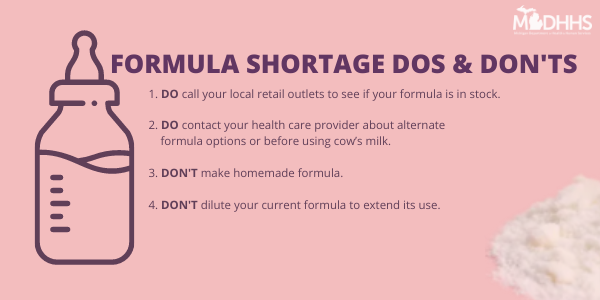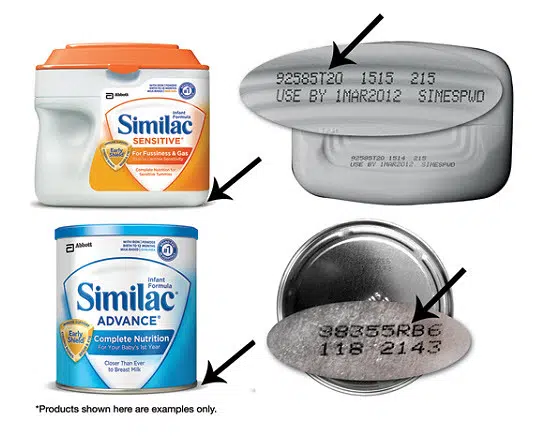LANSING, MI (WKZO AM/FM) — Governor Gretchen Whitmer announced on Friday, May 13, action that the State of Michigan is taking action to address the nationwide baby formula shortage.
The governor brought together the Michigan Department of Health and Human Services (MDHHS), the Michigan Department of Agriculture and Rural Development (MDARD), including the Women, Infants, and Children Program (WIC), and Michigan Attorney General Dana Nessel to ensure parents who need formula get the resources and support they need to provide for their babies.
“Today (Friday, May 13), I spoke with Abbott leadership and offered support to help get production back on track,” said Whitmer. “I will do everything I can as governor to boost baby formula production, getting it from factories to store shelves and into people’s homes. I know how anxious parents must feel right now, and it’s crucial that they have confidence that a product is safe for their babies. I urge federal leaders to use every tool at their disposal to boost formula production. We’re tackling the shortage head-on in Michigan and working with our federal and private sector partners to fix supply logistics and ensure every baby has what they need.”
Whitmer added., “I will continue staying focused on lowering costs on essentials like formula, groceries, and gas for families by putting more money in their pockets and work with anyone to tackle supply chain challenges impacting Michiganders.”
MDHHS released new guidance to help parents navigate the dos and don’ts as supply chains challenges and recalls resulted in limited supply around the country.

DOS: The department recommends that families do consider trying another brand of formula as most regular baby formulas are enough alike that most healthy babies can switch without problems. It is important that babies be fed an appropriate substitute if their usual formula is not available. All standard infant formulas for healthy babies meet the same FDA high standards for quality and nutrition.
DON’TS: The department recommends that families don’t feed their babies homemade formula, or ‘water down’ formulas to stretch them out, as these are unsafe practices.
If you have concerns about infant formula, contact your health care provider or FDA at 1-888-INFO-FDA 1-888-463-6332, or file a report online at MedWatch. Contact your child’s healthcare provider if you are unable to access the formula your child needs.
Learn more safety information on infant formula by clicking the following link:
https://www.fda.gov/consumers/





